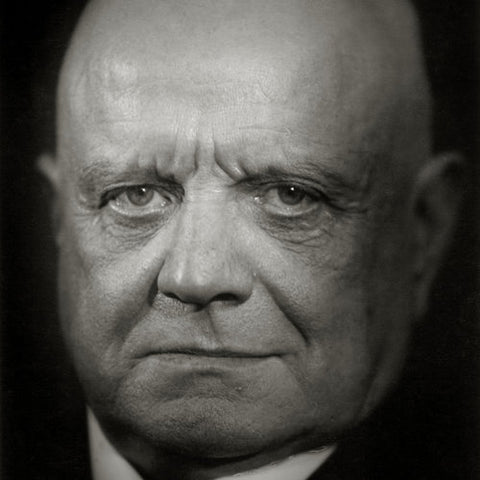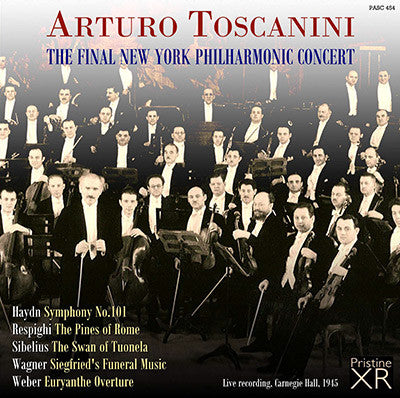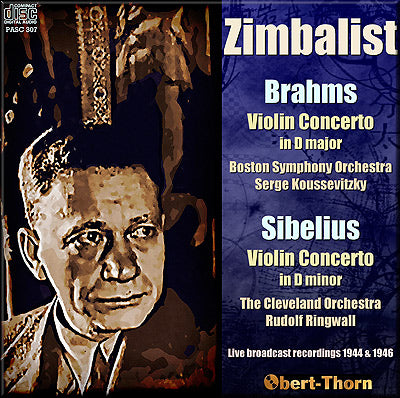Sibelius

Jean Sibelius, born Johan Julius Christian Sibelius (8 December 1865 – 20 September 1957), was a Finnish composer and violinist of the late Romantic and early-modern periods. He is widely recognized as his country's greatest composer and, through his music, is often credited with having helped Finland to develop a national identity during its struggle for independence from Russia.
The core of his oeuvre is his set of seven symphonies which, like his other major works, continue to be performed and recorded in his home country and internationally. His other best-known compositions are Finlandia, the Karelia Suite, Valse triste, the Violin Concerto, the choral symphony Kullervo, and The Swan of Tuonela (from the Lemminkäinen Suite). Other works include pieces inspired by nature, Nordic mythology, and the Finnish national epic, the Kalevala, over a hundred songs for voice and piano, incidental music for numerous plays, the opera Jungfrun i tornet (The Maiden in the Tower), chamber music, piano music, Masonic ritual music, and 21 publications of choral music.
Sibelius composed prolifically until the mid-1920s, but after completing his Seventh Symphony (1924), the incidental music for The Tempest (1926) and the tone poem Tapiola (1926), he failed to produce any major works in his last thirty years, a stunning and perplexing decline commonly referred to as "The Silence of Järvenpää", the location of his home. Although he is reputed to have stopped composing, he attempted to continue writing, including abortive efforts on an eighth symphony. In later life, he wrote Masonic music and re-edited some earlier works while retaining an active but not always favourable interest in new developments in music.
The core of his oeuvre is his set of seven symphonies which, like his other major works, continue to be performed and recorded in his home country and internationally. His other best-known compositions are Finlandia, the Karelia Suite, Valse triste, the Violin Concerto, the choral symphony Kullervo, and The Swan of Tuonela (from the Lemminkäinen Suite). Other works include pieces inspired by nature, Nordic mythology, and the Finnish national epic, the Kalevala, over a hundred songs for voice and piano, incidental music for numerous plays, the opera Jungfrun i tornet (The Maiden in the Tower), chamber music, piano music, Masonic ritual music, and 21 publications of choral music.
Sibelius composed prolifically until the mid-1920s, but after completing his Seventh Symphony (1924), the incidental music for The Tempest (1926) and the tone poem Tapiola (1926), he failed to produce any major works in his last thirty years, a stunning and perplexing decline commonly referred to as "The Silence of Järvenpää", the location of his home. Although he is reputed to have stopped composing, he attempted to continue writing, including abortive efforts on an eighth symphony. In later life, he wrote Masonic music and re-edited some earlier works while retaining an active but not always favourable interest in new developments in music.
Close

Sibelius
Jean Sibelius, born Johan Julius Christian Sibelius (8 December 1865 – 20 September 1957), was a Finnish composer and violinist of the late Romantic and early-modern periods. He is widely recognized as his country's greatest composer and, through his music, is often credited with having helped Finland to develop a national identity during its struggle for independence from Russia.
The core of his oeuvre is his set of seven symphonies wh...
The core of his oeuvre is his set of seven symphonies wh...
Read More
Download from
€7.00
| Buy on CD from €10.00
HAYDN Symphony No.101
RESPIGHI The Pines of Rome
SIBELIUS The Swan of Tuonela
WAGNER Siegfried's Funeral Music
WEBER Euryanthe Overture
Live recording, Carnegie Hall, 1945
Total duration: 79:53
Philharmonic Symphony Orchestra of New York
Download from
€7.00
| Buy on CD from €10.00
BRAHMS Violin Concerto
SIBELIUS Violin Concerto
Boston Symphony Orchestra
conductor Serge Koussevitzky
The Cleveland Orchestra
conductor Rudolf Ringwall
SIBELIUS Violin Concerto
Live broadcasts: Boston,1946 and Cleveland, 1944
Total duration: 77:33
Boston Symphony Orchestra
conductor Serge Koussevitzky
The Cleveland Orchestra
conductor Rudolf Ringwall
- Previous
- Page 8 of 8
-
Next


